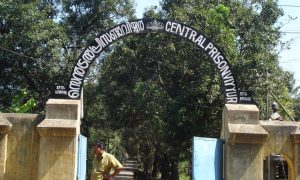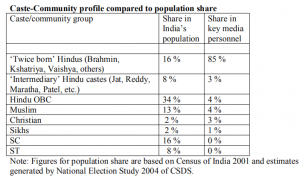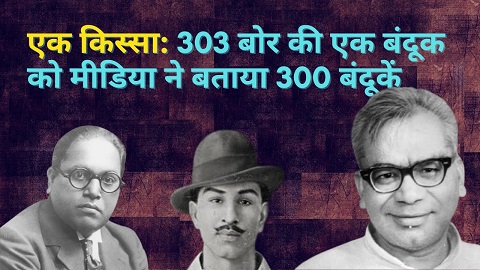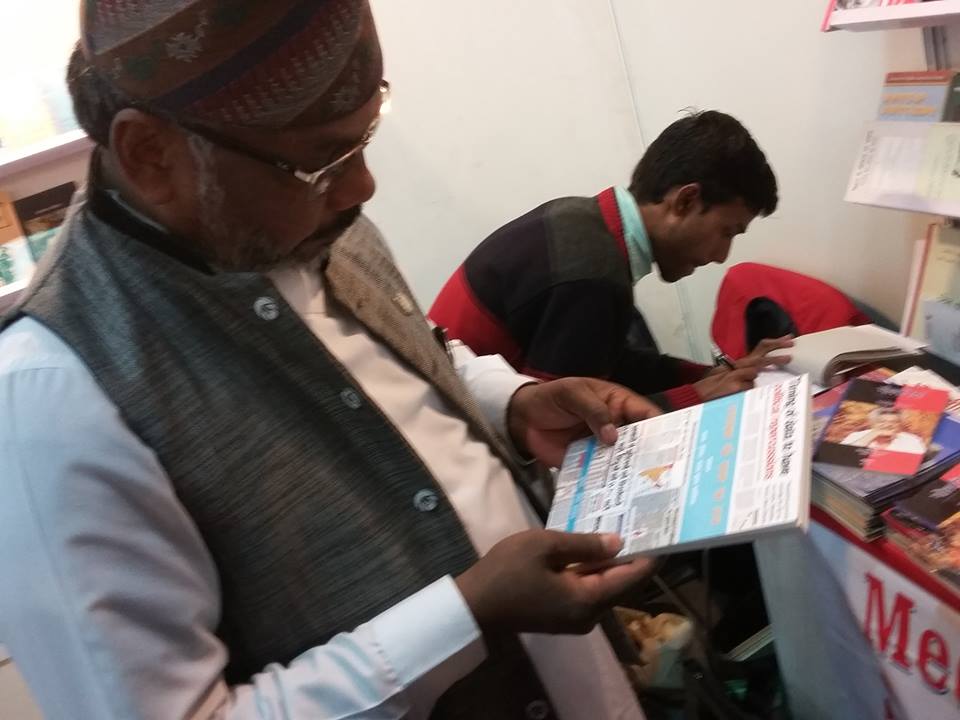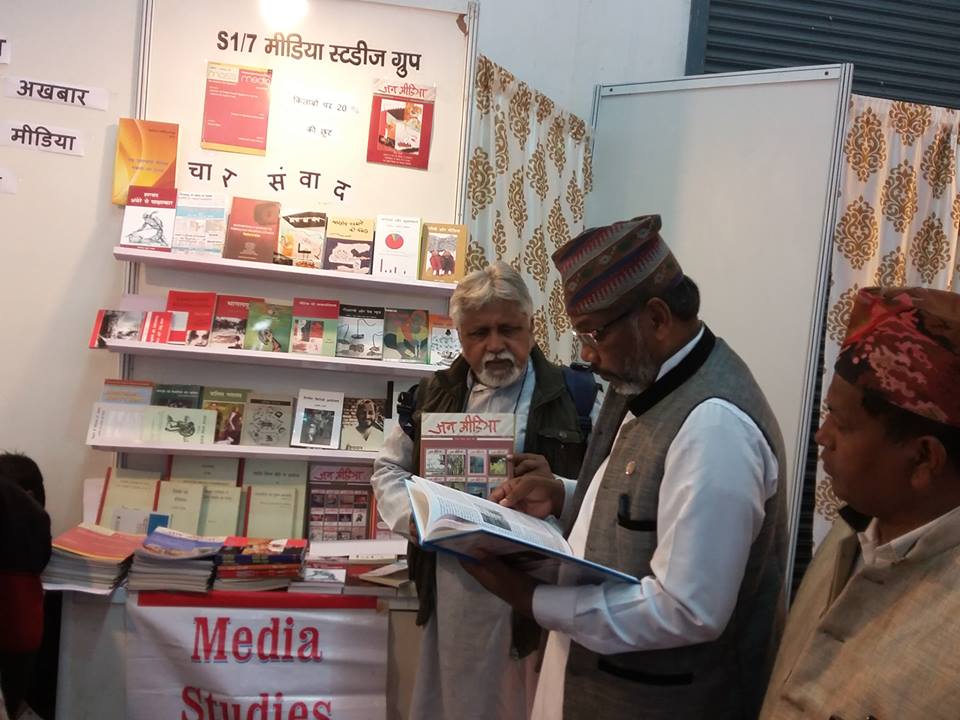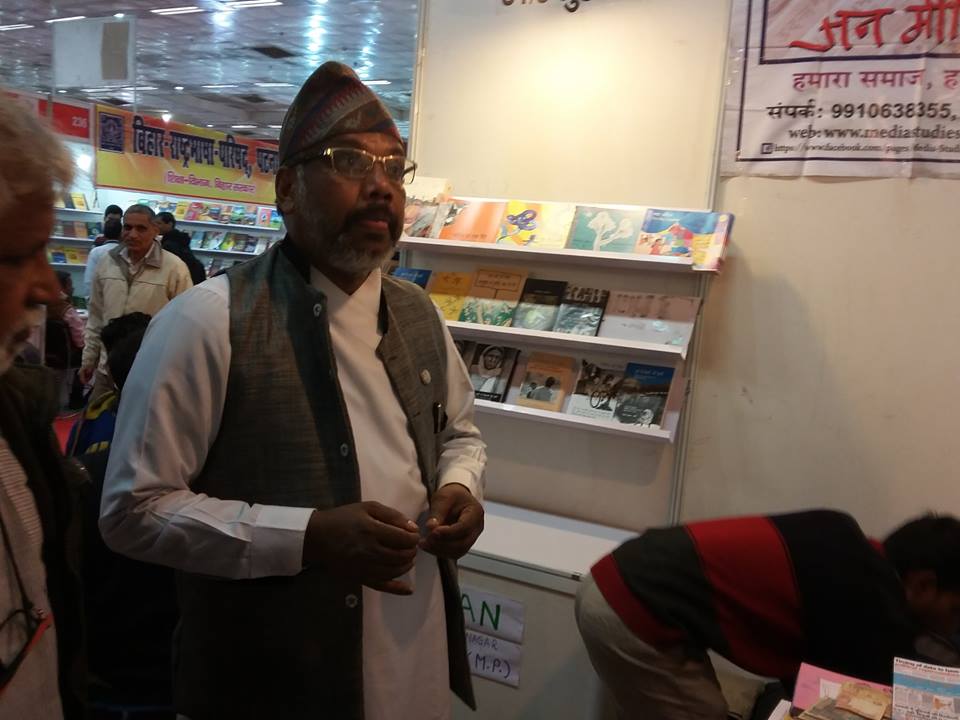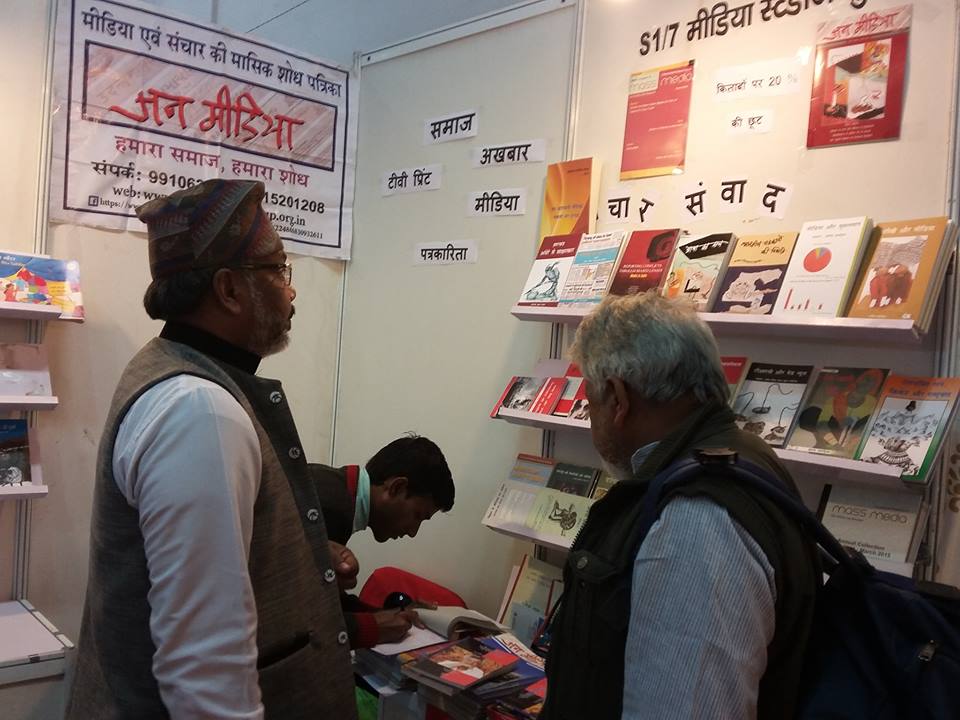Dear BBC,
19-07-2019
I have been active in journalism and its academic field in India for more than 35 years. I have learnt variety of words from my long journalistic experiences. But the word that hovers my mind the most is caste. I am aware of discrimination to Blacks and movements against this evil in Britain. Across the globe, there have been discrimination’s on the basis of gender, color, race, language and religion etc. Discrimination means whoever is up in the social, cultural and economic ladder wants to inflict his hegemony over a large population which is placed comparatively lower down in that hierarchy. Discrimination was done on the basis of nationality during British rule in India. At that time, Indians used to plead before the British government that they should also be accommodated in government jobs. Pleadings used to be made for the right of self-defence to Indians as well. And the list of such demands was long.
The basis of discrimination in India is quite different from that of the global level. And this basis is known as caste. As per the Constitution of this country, you can change your religion. Science enables us to change our gender. But in India, the caste of a person can’t be changed in any circumstances. The stamp of caste is visible everywhere. Even colors have their castes! Crematoriums here are divided on the basis of castes. Most of the marriages take place within the caste. There is a caste – based segregation of names!
If I ask a direct question that why there is no representation of almost 90 per cent population in the India office of BBC? Why people belonging to certain caste groups have been preferred in BBC? Have people sitting at the helms in BBC been preferring only those having a certain type of thinking, mannerism, flair in writing and reading, dressing sense etc.? Is this not a kind of caste? Those who have been rejected only because they don’t have any understanding of ‘good language’ and journalism? Whatever you brand as worthy is nothing but a packaging. And in India, the criterion of packaging of worthiness is caste. When we conducted a study in 2006 to understand the caste background of the people sitting at the top of the editorial departments of almost all media organisations in India, it was found that people belonging to 90 per cent population don’t find any place in those offices. The India office of BBC was one among them.
Is this a mere coincidence that those who have been recruited in these offices belong to a certain caste group only? It means such is the eyesight that it likes a certain caste group only!
Now you can think on yourself that how such kind of intensity and impact of caste works at a public place? Touching of a caste becomes unholy. Even his shadow is hated. Can it be perceived that after reaching their offices these people of certain caste group, equipped with a training of caste – based discrimination since ages, swiftly transform themselves as global members of an organisation like BBC?
After quitting of British rule in India, a demand of participation in power on the basis of social and educational backwardness has been in the centre of Indian politics. It is believed that for all practical purposes those people are currently ruling in India who were once demanding inclusion of Indians in the government services during British – India. It is these people from whom abolition of rules of social and educational backwardness is demanded at practical level. And frankly, it is they who staunchly support such rules of discrimination. A kind of differentiation is utilized to remove all gaps for bringing equality. But another type of differentiation is actually nothing but hatred and it is not meant for abolition of any evil. Instead, it is kept as abominable.
Why the representation of Other Backward Classes, Dalits and Scheduled Tribes of Indian society has not been possible in BBC? Dalit, Other Backward Class and Scheduled Tribe are, in fact, official nomenclature of more than three thousand castes. Are they black in color? Do they have different type of mannerism? Whether their thought process is identical with that of the Indian Constitution? Whether they really don’t know when and before whom they have to give a smile? Whether they laugh loudly and such kind of laughing is taken as uncivilized in the culture of dominance? In India, noses of rats and ants work round the clock in identifying castes.
I am writing this long letter to you because we are pained to hear an unjust decision of terminating Meena Kotwal from her job. This young Dalit girl was recruited for the training in the Hindi service of your prestigious organisation in India. Why was she selected in the first place? Whether this was done only for a propaganda that BBC is not allergic to Dalits?
I have worked with numerous interns. Coming from a feudal state like Rajasthan and that too from a laborer family where none of her four siblings found an opportunity to study beyond class eight and completing her course of journalism from prominent institutes like Jamia Millia Isllamia and Indian Institute of Mass Communication (IIMC) was no mean feat for this girl. Youngest among her siblings, Meena has reached to this level only because of her sheer determination and hard work. Her inner conviction can be identified. Her talent can be tested. Numerous ‘talented’ people in BBC together couldn’t train and mould this lone Dalit girl as per the standards and requirements of BBC! Now you think on yourself how this should be analysed?
I was listening to Meena’s BBC – Diary. She couldn’t feel the tinge of caste in Ambedkar Nagar locality as she was surrounded by her own ilk there. But during her stint in BBC, her crime was that she started feeling the tinge of caste. I have numerous experiences where a person of Dalit community feels the intensity of caste only when he or she comes out of his or her closets in a Dalit neighborhood. But whoever is born in a so – called upper caste family intrinsically feels that he or she is placed up in the social order. In BBC, Meena was told that there is no Dalit in the era of internet. It’s a declaration of non- acceptance of which situation? Another day one of her colleague, while returning back from the office, painfully expressed before the cab driver that now his people will also sit with him. These two personnel of BBC are not different. In fact, they are one in their approach as a caste. BBC daily comes across with different stories of sufferings of people only because of their Dalit lineage. In other words, Dalits are merely a source of content for the BBC.
Meena’s strength can be identified as she has evolved herself in a very adverse condition. But in BBC, she found that there is a dominance of those people who have been trained since ages in breaking the confidence of a Dalit and that too a woman. Breaking someone’s self – confidence is the new form of asking for a thumb from a Eklavya by a Dronacharya. If a trainee girl suffers from depression, thinks about committing suicide, becomes so scared of her office that she prays for her own accident so that she is free from going to office for days, what else could be the explanation than the virus of caste which is ready to go to any extent for depriving the girl from her own capital? Nothing happens to a shameless and sycophant person when he is scolded. But if a person who takes scolding as scolding is scolded publically, life becomes hell for him. Everything, including eating and sleeping, turns meaningless for him. Accepting a Dalit and for that matter a woman too with all her sensibilities and expectations is always a challenge. Whatever Meena has been feeling all these days is felt by some at the BBC as well. But that is not adequate for demolishing an age – old dominance in the society. We can treat them as exceptions only.
I request your immediate and sincere intervention in preventing the BBC from transforming as an institution of caste. In this pursuit, you can take help of sociologists. In fact, you should become as a mirror of Indian society. There is immense talent among those who are called as Backwards, Dalits and Tribals.
I hope that you will not take any of my submissions in bad faith. I apologize for hurting any of your feelings mistakenly. I sincerely believe that you will see this entire episode of Meena as an opportunity to clean the dust on the mirror.
Regards
Anil Chamadia


